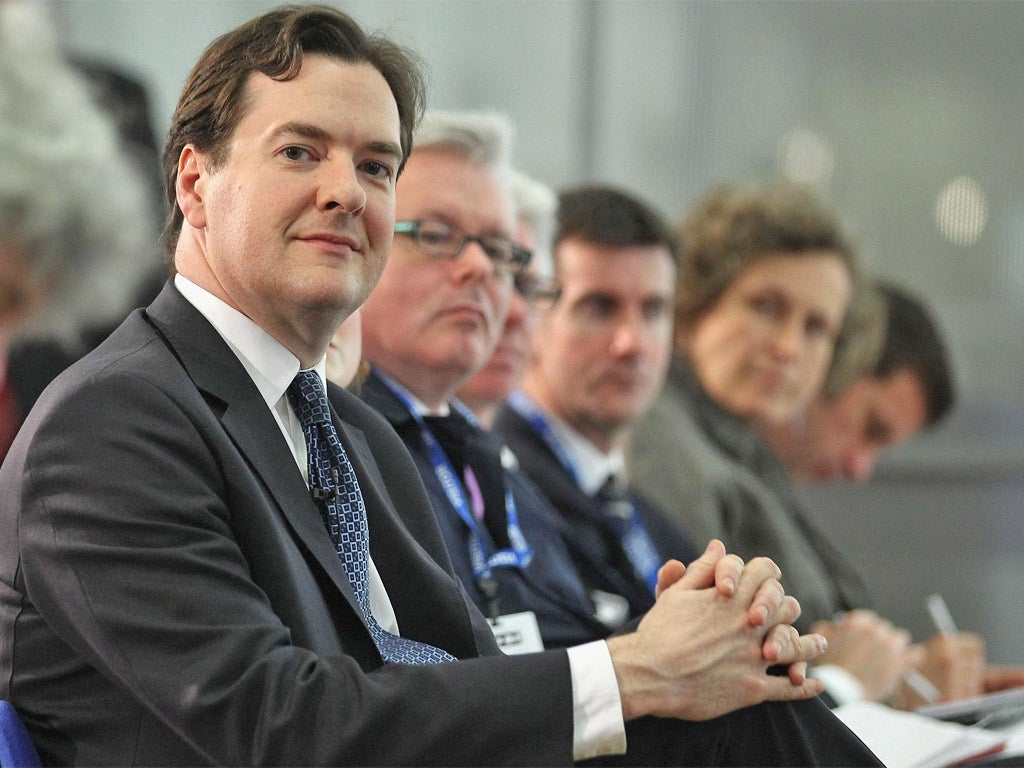Leading article: Beware false promises of easy economic growth
Austerity is now pitted against recovery as if politicians have merely to choose

Amid the hard graft of paying down vastly inflated national debts, the promise of another – easier – way is a seductive one. It is also, alas, too good to be true. Both here and in Europe, the economic debate is becoming ever more polarised, pitting "austerity" against "growth" as if politicians have merely to choose between the two. It is an over-simplification that could hardly be further from reality, and the spread of its appeal could hardly be more unhelpful.
Yesterday's verdict on the British economy from the International Monetary Fund – claimed as vindication by both sides of the debate – is a case in point. Because the IMF's managing director explicitly backed the Government's fiscal strategy, it was a victory for the Chancellor. But Christine Lagarde was also clear that unemployment is too high and growth too slow, and, given the drag from Europe, the Government might yet have to recalibrate its plans. To George Osborne's critics, it was a recommendation that sounded much like a call for Plan B. And yet somewhere, behind all the bluster, is the stark fact that, when it comes to the balance between borrowing and spending, there is but a hair's-breadth separating them.
Meanwhile, in Europe there is an all-too-similar stand-off. The most egregious case is, of course, in Greece, where the Syriza party may win next month's election on the promise that the pain of the country's intractable financial problems can be eased with no adverse consequences. But Alexis Tsipras's disingenuousness is only the most extreme example. France's new President is in danger of falling into a comparable trap, allowing his role as cheerleader for European growth to imply that he offers an austerity-lite that he neither does, nor indeed can.
There is, without question, a desperate need for growth. Yesterday's forecasts from the OECD warning of a "severe recession" in the eurozone this year could not be clearer. But the eurobonds that François Hollande will advocate at today's meeting in Brussels, supposedly as part of his pro-growth agenda, are a separate issue altogether. Allowing debt to be shared by all 17 members may be necessary for the long-term survival of the euro. But the plan is only viable as a corollary of closer fiscal integration that will take many years (and much political compromise) to put in place. More importantly, even the immediate adoption of eurobonds would not boost growth per se, but merely allow much-needed reforms to be put off.
That said, there is much that can be done. But the opportunities – and they are being unforgivably missed – are in the details, not on the fake battleground of broad macroeconomic policy. That means both the structural reforms touted by Chancellor Merkel but barely pursued, and the boost to German demand that goes largely unmentioned out of deference to fears of hyperinflation. It is here, in fact, that Mr Hollande makes the most sense, in his proposal of eurozone-wide "project bonds" to fund specific infrastructure investment in the hardest-hit economies. It is a scheme that should be adopted forthwith.
It is here, too, that the IMF had the most useful things to say about Britain yesterday. Ms Lagarde not only backed further monetary easing. She also called on the Government to do more to prioritise economically productive areas (such as capital investment) over unproductive ones (such as public sector wages), and to ramp up efforts to boost business lending. All are sensible suggestions. It should not need the IMF to make them.
After the bursting of the biggest credit bubble in history, there is no way to avoid a painful correction. It is time for politicians to stop making false promises, to stop posturing about differences that scarcely exist, and to start telling the truth about what is possible and what is not.

Join our commenting forum
Join thought-provoking conversations, follow other Independent readers and see their replies